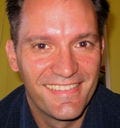The Spoils of Surrender
Why the best approach for the struggling writer may be just to give up
The most persistent problem I experience as a writer is that when faced with rejection and a creeping suspicion that my literary dreams will not come true, I wonder how to keep writing.
The solution, which came from a writer more experienced (and more published) than I, is this: Give up.
After graduating from an MFA program, I went back into journalism and interviewed scores of authors. One was George Saunders, whom I interviewed after the publication of Pastoralia, his award-winning book of short stories. I remarked to Saunders that his comic style was so eccentric, so seemingly reactionary, that I wondered if he had started out writing conventional stories. He said Yes.
Years earlier, Saunders had entered an MFA program with the belief that Art was something you learned: not something you already knew how to do, but a difficult craft, like making fine furniture or playing cello. One of the things Saunders already knew how to do was to be funny, but, after all, Literature is not funny. And so Saunders spent two years trying to write like Raymond Carver, with little success.
To pay the bills, Saunders took a job at a giant financial firm, as soon he was miserable. One day he was alone at his desk, listening in on a numbingly dull conference call, wondering how he got there. He was supposed to have been a famous author by now.
To relieve the tedium, Saunders took a piece of paper and composed a silly little story in rhyme, which he illustrated. When he showed this trifle to a coworker, said coworker fell on his ass laughing. He loved it.
Saunders came home and told his wife, who observed that the coworker’s response was the strongest reaction — positive or negative — her husband’s writing had ever received.
Saunders was unpublished. He had a boring job. He had a growing family. What to do?
He gave up.
He forgot about trying to be Raymond Carver. He forgot about vaulting ambition, fantastic daydreams of fame, and the pressure he put on himself.
As a result, Saunders told me, he started to enjoy life. He spent time with his children, he rode his bike to work, and he wrote when he felt like it — a sentence today, a paragraph tomorrow, maybe nothing for three days. Who cared? He had given up.
What was more, Saunders gave himself permission to be funny, an ability he always had and never lost — and lo and behold, he started to want to write, because he was writing to entertain himself and his friends.
The fact that writing had become fun didn’t mean that he had to work less hard at it.
Saunders started sending these new stories out and — you guessed it — he started getting published: The New Yorker, Esquire, The Atlantic Monthly, book deal. Voilà!
Saunders’ tale made me consider: If I were writing a short story or a novel that would never end up getting published, didn’t it make sense to be enjoying myself? If all that time and hard work didn’t result in a book deal, wouldn’t I want to be able to say, “At least I was working on something I enjoyed, something that made me feel like I was being true to myself?”
Like Saunders, I spent decades listening to people tell me how funny I was, but I didn’t want to hear it; I wanted to be taken seriously, so it only followed that I should write serious short stories (which along qualify to be literature). And yet, in my MFA program, the short story that got the strongest reaction from my colleagues was a comedy — a farce — that I wrote to give myself a laugh.
To this day, everyone from the program remembers that story.
Allen Ginsberg said it best: “Many writers have preconceived ideas about what literature is supposed to be, and their ideas seem to exclude that which makes them most charming in private conversations.”
I am, of course, free to be serious, but I find now that I take being serious, well, a little less seriously. I still work hard, I enjoy my writing — and wouldn’t you know, ever since I gave up, I’ve been producing more material than I ever have. Suddenly, continuing on isn’t so hard.
I still dream, of course: I have hopes for publication and whatever minor, momentary fame it may bring, but since I gave up, vying for these goals feels more like a game — an enjoyable game. So I say, give up. Discover, as I have, what it truly means to write for yourself. Throw the dreams, the ambition, the adopted style and the false self into the trash. Then, and only then, can the real work — and the real fun — begin.
This essay originally appeared in the August 2003 edition of The Writer magazine.
